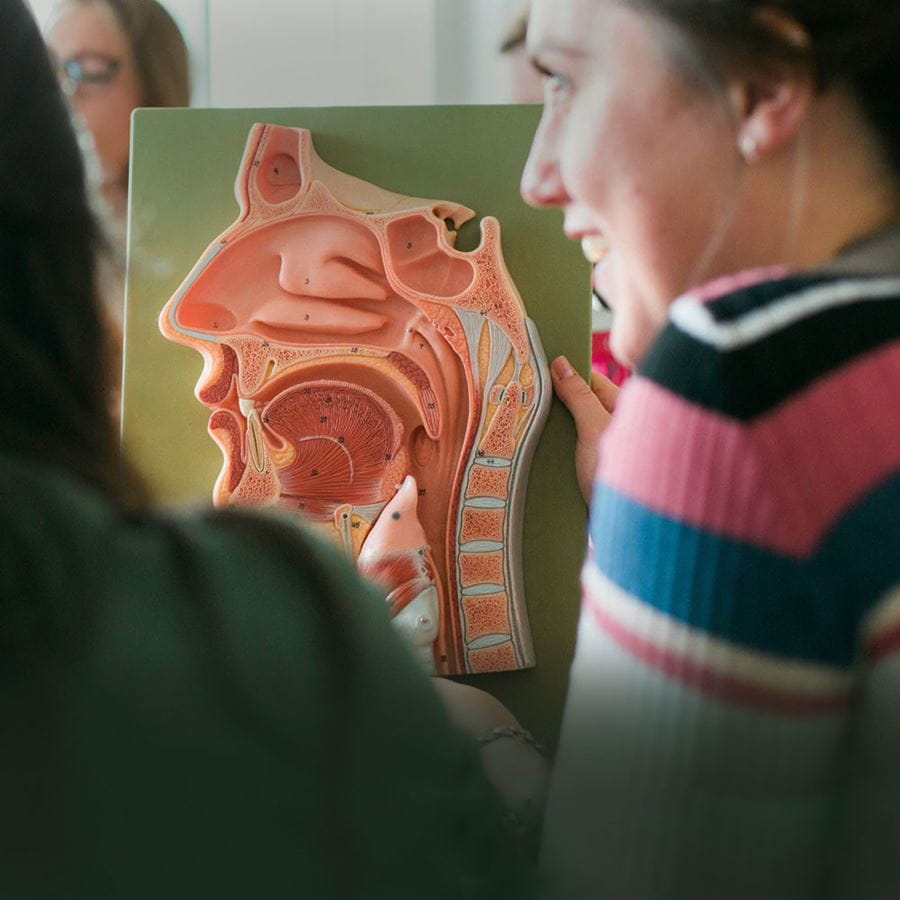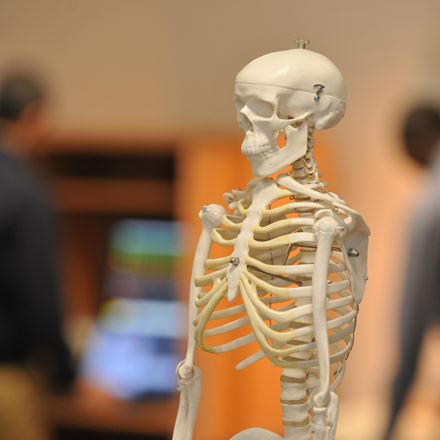Training to be a Speech and Language Therapist is all about giving people voice and maximising their independence – and includes more than just human communication.
It’s estimated that nearly 20% of the population experiences communication difficulties at some point in their lives.
That could be at any point from birth through to old age, and problems could range from voice disorders to selective mutism, to recovery from throat cancer. But the work of a Speech and Language Therapist doesn’t stop there. It also includes helping children and adults with feeding and swallowing issues too.
Here at Essex, we focus on a holistic approach which enables patients to maximise their independence in their social, academic and working lives. We use a range of learning techniques to help you build your knowledge of a wide range of conditions and challenges. Successful completion of our pre-registration BSc Speech and Language Therapy course or our Speech and Language Therapy Degree Apprenticeship means you’re eligible to apply for registration with the Health and Care Professions Council (HCPC) and start your career as a Speech and Language Therapist. For those who have already studied at undergraduate level, we also offer MSc Speech and Language Therapy which is also a pre-registration course.
When you choose to study with us, you'll gain more than just a qualification. You'll be part of our learning community, and we've got plenty to offer. Check out our facilities, and find out more about our School of Health and Social Care.
If you're thinking about applying for one of our courses, make sure you read through our helpful tips on what we're looking for in your personal statement, and how to prepare for an interview with us.
Explore our undergraduate Speech and Language Therapy course
Explore our apprenticeships













